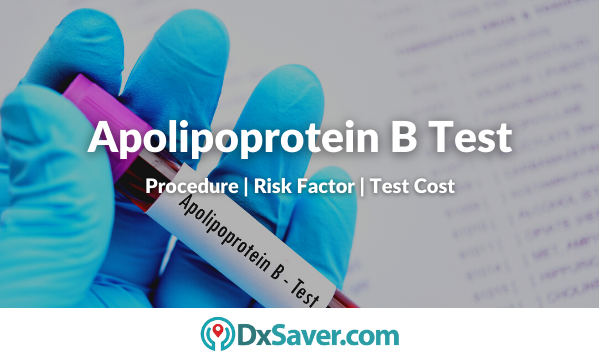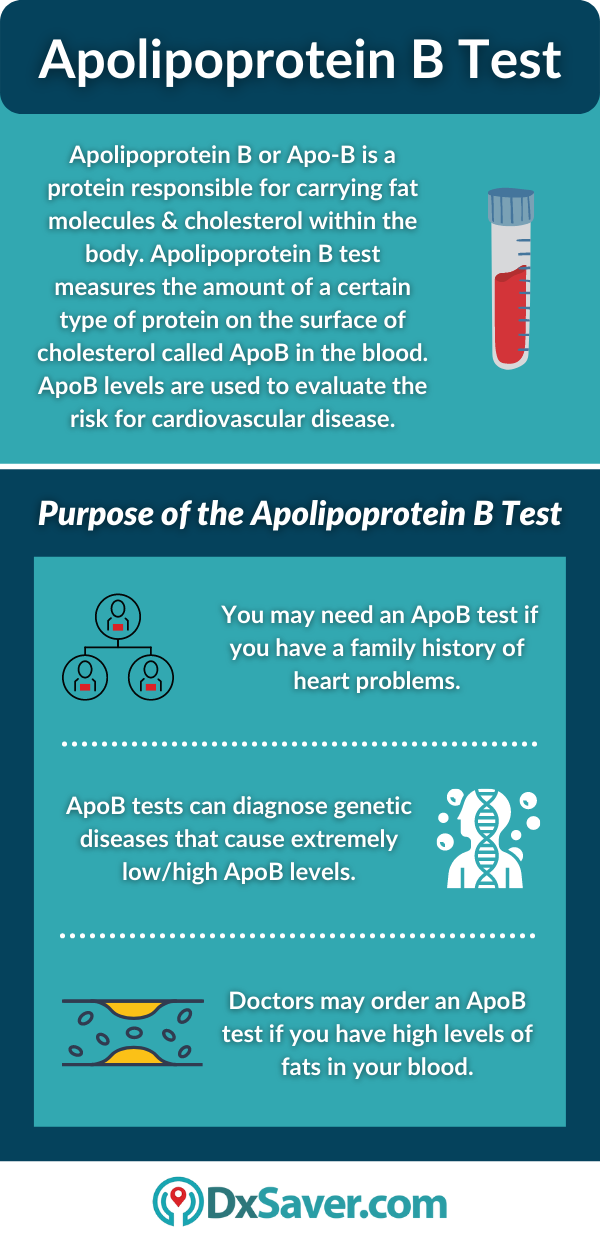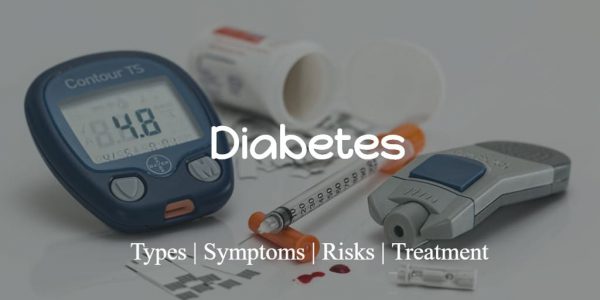
Apolipoprotein B or Apo-B is a protein that is responsible for carrying cholesterol and fat molecules within the body. Doctors use the apolipoprotein B blood test to determine the risk of heart disease if you have a family history of heart disease. This test measures the level of a certain type of protein on the surface of cholesterol called ApoB in the blood. High levels of it may indicate high cholesterol and it is considered as the risk factor for heart disease. The apolipoprotein B test may not always be predictive of heart disease. Although high LDL levels are common in people with heart disease, many people with the condition have normal levels of LDL cholesterol.
This article covers all the significant topics related to the apolipoprotein B test such as the test cost, preparation for tests, risk factor, and how to get tested for an apolipoprotein B test.
- What is apolipoprotein B?
- Apolipoprotein B test
- Why do I need this test?
- How should you prepare for the apolipoprotein B test?
- What happens during the apolipoprotein B test?
- Risk of this test
- What do the results mean?
- Provider locations
For our readers who are interested in knowing the apolipoprotein B test cost beforehand, we begin with that section.
How much does the apolipoprotein B test cost?
Apolipoprotein B test costs range from $59 to $66 in different labs and facilities across the US. No prior appointment is required. You may compare the price and order tests online, or visit the nearest lab during lab business hours. You will get the results in your email in 2-3 business days after completing the procedure. Doctor consultation is also available for any kind of medical advice or further treatment.
The following table shows the apolipoprotein B test provider and their price. You can know more and book the test now by clicking on the “Book Now” button. All the labs are certified and offer a network across the US.
Name of our Partner Labs | Book Online at Offer Price |
HealthLabs
| $59 |
Personal Labs
| $66 |
Apolipoprotein B test cost with insurance
Many insurance companies in the U.S. cover all the vital tests. But the coverage offered by private health insurance companies and national health insurance programs like Medicare varies widely. Most of the health insurance policies cover apolipoprotein B test costs. However, you are recommended to check if your health insurance policy covers the apolipoprotein B test cost.
Our apolipoprotein B testing providers don’t accept any kind of health insurance policy. However, they can provide you with an itemized receipt containing all the details viz the name of the test, code of the test, and CPT code which is necessary for insurance reimbursement purposes.
What is apolipoprotein B?
Apolipoprotein B (ApoB) is a large protein that serves as the backbone of LDL and other lipoproteins. Often LDL is referred to as bad cholesterol because high levels of it can damage blood vessels and the heart. Apolipoprotein B is the structural backbone of three important lipoproteins. It includes very-low-density lipoprotein (VLDL), intermediate-density lipoprotein (IDL), and low-density lipoprotein (LDL).
Two types of apolipoprotein B (ApoB) are:
- ApoB48 – it is made in the gut as a part of compounds (chylomicrons)
- ApoB100 – it is made in the liver & gets released into the blood in the form of VLDL
The VLDL loses fats (triglycerides) to form IDL and eventually LDL. Apolipoprotein B helps LDL bind to receptors on cells & deliver cholesterol and it is also essential for liver cells to bind LDL and remove it from the blood. Each and every molecule of VLDL, IDL, and LDL have one molecule of ApoB, and this makes ApoB a measure of total non-HDL lipoproteins in circulation. ApoB containing lipoproteins are the major contributors to the hardening of the arteries and heart disease.
Apolipoprotein B is also called Apo B, lipoprotein B, LPB, or apolipoprotein B-100.
Apolipoprotein B test
Doctors use the apolipoprotein B test (ApoB) to determine the risk of heart disease if you have a family history of heart disease or other heart disease risk factors. And it is also used to diagnose genetic diseases that cause extremely high or low ApoB levels. Apolipoprotein B test measures the level of a certain type of protein on the surface of cholesterol called ApoB in the blood. ApoB is the main protein found in LDL or low-density lipoproteins. Low-density lipoproteins cholesterol is also called bad cholesterol because high levels of it can damage the heart and arteries. This test helps doctors figure out your risk for cardiovascular disease. And apolipoprotein B test is not part of routine practice.
Why do I need this test?
Doctors may order an apolipoprotein B test when you have one of the following:
- A family history of heart disease, high cholesterol, or hyperlipidemia
- When you have a high level of fats, including cholesterol and triglycerides in the blood
- Currently being treated for high cholesterol or hyperlipidemia
- If you already have had heart problems like a heart attack
Apolipoprotein B test is also sometimes used to determine how well treatment is working to bring down high levels of fat in your blood. When the treatment is working, ApoB100 levels should return to normal. But if they remain elevated, you may need a different type of treatment.

How should you prepare for the apolipoprotein B test?
Doctors will give you specific instructions to follow. Mostly, you won’t be allowed to consume anything except water for several hours before the test. So, ask your doctor how long you need to fast. And it’s essential to notify them about any prescription drugs, over-the-counter medications, or supplements you take. Because they might ask you to stop taking certain medicines that may interfere with the accuracy of the test.
What happens during the apolipoprotein B test?
This testing requires a blood sample. A lab tech or healthcare professional will take a blood sample from a vein in your arm. To make the vein fill with blood & swell up, they will tie a band around the upper part of the arm. And the lab tech will clean the area with an antiseptic and place a needle into the vein. You may feel a stinging sensation or slight prick when the needle goes in. They will collect the blood in a test tube attached to the end of the needle. After taking the blood, a lab tech will remove the needle and band. And they will put a bandage or gauze over the area where the blood was drawn.
Risk of this test
There is little risk in having an apolipoprotein B test. It is common to have slight pain or bruising in the area where the needle was inserted. But these symptoms go away quickly.
What do the results mean?
Generally, the normal range for apolipoprotein B is below 120 mg/dL (milligrams per deciliter) or 1.2 g/L (grams per liter). The normal ranges may vary slightly between labs.
High levels of ApoB100 levels can be related to certain health issues, it may include:
- Familial combined hyperlipidemia – an inherited disorder that causes high cholesterol & triglyceride levels
- Hypothyroidism – a disorder in which the thyroid gland fails to produce a sufficient amount of hormones
- Diabetes – a disease in which the body either does not produce enough insulin or is resistant to it, leading to high blood sugar
- Kidney disease
- Overweight or obese
- Pregnancy
- Menopause
- Use of certain drugs, like beta-blockers, diuretics, or androgens
Low levels of ApoB100 levels may also be problematic, it could indicate:
- Hyperthyroidism – a disorder in which the thyroid gland produces an excessive amount of hormones
- Abetalipoproteinemia – a condition that prevents the body from properly absorbing dietary fats
- Reye’s syndrome – a serious condition that causes sudden swelling in the brain and liver (rare)
- Cirrhosis or severe scarring of the liver
- Malnutrition
Regardless of the test results, talk with your doctor about what they may mean for you specifically.
Provider locations
The apolipoprotein B test can be done in any of the following locations by visiting the lab near you. To know the apolipoprotein B test cost, refer to the first section of the article.
- Alabama
- Alaska
- Arizona
- Arkansas
- California
- Colorado
- Connecticut
- Delaware
- Florida
- Hawaii
- Georgia
- Idaho
- Illinois
- Indiana
- Iowa
- Kansas
- Kentucky
- Louisiana
- Maine
- Michigan
- Minnesota
- Mississippi
- Missouri
- Montana
- Nebraska
- Nevada
- New Hampshire
- New Mexico
- North Carolina
- North Dakota
- Oklahoma
- Oregon
- Pennsylvania
- Puerto Rico
- South Carolina
- South Dakota
- Tennessee
- Texas
- Utah
- Vermont
- Virginia
- Washington
- West Virginia
- Wisconsin
- Wyoming
Frequently Asked Questions
Will insurance cover my testing cost?
No, insurance will not be covered in the billing. However, they will provide you with a receipt for insurance reimbursement purposes.
How should I book my appointment?
You can choose the most suitable provider from above and make an appointment by following the instructions mentioned by them.
Can I cancel my lab test order?
Yes, you can cancel your lab test order any time before your testing. A refund will be initiated after deducting the cancellation fee. However, cancellation is at the discretion of the provider.
Do the providers offer result interpretations?
Yes, a few providers may provide doctor consultation who will take you through the results and provide clarification if needed.
How do I receive my report?
To ensure your privacy, the test report will be mailed to you by the provider.
Other topics you may also be interested in:-
- Complete Blood Count (CBC) Test Cost in the U.S.
- What is BNP Blood Test? – Causes & Symptoms of High & Low BNP Levels
- Liver Health and AST Levels
- Normal iron levels and what do the high/low levels interpret?
- Importance of hCG Qualitative Pregnancy Test
- What is the Occult Blood Test? – Test Cost, and Procedure
- ACTH Hormone Test
- What is the Mineral Deficiency Test?
- What is MMA Fighter Blood Test?
- Symptoms of Oral Herpes
- Glucose Blood Test: Purpose, Procedure and Test Results
- CK Blood Testing Cost
- Oral HPV Symptoms in Men and Women
- What is HCT in Blood Tests?
- Troponin Testing in the US
- Symptoms and Signs of Lactose Intolerance
- Causes and Symptoms of High and Low Levels of MCV Hormone






